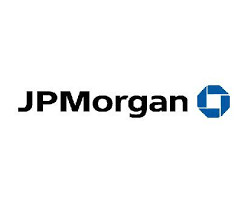
JPMorgan Chase & Co is streamlining its business and the bank would stop settling U.S. government securities transactions for most dealers by the end of next year.
This was announced recently by the bank.
The only clearing bank for such transactions between dealers and investors would be left to BNY Mellon Corp by the change and the decision of the bank.
According to data from the Securities Industry and Financial Markets Association, down slightly from a daily average of $507 billion for the same year-earlier period, an average of $504 billion of U.S.
Treasuries had changed hands per day in the first six months of 2016.
A key source of short-term borrowing for Wall Street firms which pledge U.S. Treasuries and other securities as collateral to fund their trades is the $1.6 trillion tri-party repo market that involves broker-dealers, investors and clearing banks.
"After a careful review, we have determined that it is a non-core service, particularly as we simplify our business and continue to prioritize strategic growth opportunities," a JPMorgan spokesperson said in an email.
The spokesperson said that by the end of 2017m, JPMorgan will end its Government Securities Settlement Services.
According to analysts, while JPMorgan clears the around 15 percent to 20 percent of tri-party repos, while BNY Mellon currently clears the majority of such transactions - 80 percent to 85 percent.
It was committed to settlements business, BNY Mellon responded in a statement.
Citing Michael Albanese, the Wall Street bank's managing director of investor services, Bloomberg had reported on Friday that the change would affect the settlement of so-called general collateral finance repos for 30 dealers and broker-dealers.
In order to comply with a new rule from the Securities and Exchange Commission, the customers of JPMorgan could no longer conduct repo trades with BNY Mellon clients and vice versa on July 15 and the bank’s decision on its government settlement business came soon after this incident.
The tri-party repo market has been essentially split into two by this incident and decision by the bank.
Reducing reliance on intraday credit from clearing banks for these loans is the primary aim of the change in rule by SEC. This change by the SEC is part of a broader reform of the tri-party repo market.
“Treasury has been in regular communication with J.P. Morgan about its plans regarding its Government Securities Settlement services. We are fully confident that Treasury securities will continue to trade and settle in the usual manner," Treasury spokesman Rob Runyan said in a statement.
"We are coordinating with J.P. Morgan and the Federal Reserve to manage a smooth transition that minimizes any potential impact," he added.
(Source:www.reuters.com)
This was announced recently by the bank.
The only clearing bank for such transactions between dealers and investors would be left to BNY Mellon Corp by the change and the decision of the bank.
According to data from the Securities Industry and Financial Markets Association, down slightly from a daily average of $507 billion for the same year-earlier period, an average of $504 billion of U.S.
Treasuries had changed hands per day in the first six months of 2016.
A key source of short-term borrowing for Wall Street firms which pledge U.S. Treasuries and other securities as collateral to fund their trades is the $1.6 trillion tri-party repo market that involves broker-dealers, investors and clearing banks.
"After a careful review, we have determined that it is a non-core service, particularly as we simplify our business and continue to prioritize strategic growth opportunities," a JPMorgan spokesperson said in an email.
The spokesperson said that by the end of 2017m, JPMorgan will end its Government Securities Settlement Services.
According to analysts, while JPMorgan clears the around 15 percent to 20 percent of tri-party repos, while BNY Mellon currently clears the majority of such transactions - 80 percent to 85 percent.
It was committed to settlements business, BNY Mellon responded in a statement.
Citing Michael Albanese, the Wall Street bank's managing director of investor services, Bloomberg had reported on Friday that the change would affect the settlement of so-called general collateral finance repos for 30 dealers and broker-dealers.
In order to comply with a new rule from the Securities and Exchange Commission, the customers of JPMorgan could no longer conduct repo trades with BNY Mellon clients and vice versa on July 15 and the bank’s decision on its government settlement business came soon after this incident.
The tri-party repo market has been essentially split into two by this incident and decision by the bank.
Reducing reliance on intraday credit from clearing banks for these loans is the primary aim of the change in rule by SEC. This change by the SEC is part of a broader reform of the tri-party repo market.
“Treasury has been in regular communication with J.P. Morgan about its plans regarding its Government Securities Settlement services. We are fully confident that Treasury securities will continue to trade and settle in the usual manner," Treasury spokesman Rob Runyan said in a statement.
"We are coordinating with J.P. Morgan and the Federal Reserve to manage a smooth transition that minimizes any potential impact," he added.
(Source:www.reuters.com)





